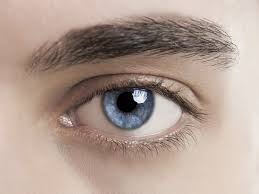
Five ways to improve eye health.
Age-related alterations in vision are to be expected. Your ability to concentrate your eyes or perceive colours may change. It can take more light for you to read or drive. When they become aware of these variations, many people ponder how to enhance their vision. Fortunately, many vision impairments are reversible and avoidable, even if slight alterations are a typical part of ageing.
Surgery, glasses, or contacts can be used to treat some age-related visual abnormalities. By attending to your health before major issues arise, you can also maintain the sharpness of your vision. Simple activities can even help maintain the health of your vision.
If detected early enough, many visual issues are curable or controllable. Nevertheless, visual loss might not be reversed once it begins. These are some things you ought to do to care for your eyes and help protect your vision far into the future ;
Sunglasses block harmful UV light, decreasing your risk of cataracts, eye cancer and sunburn. The right pair of shades will help protect your eyes from the sun’s ultraviolet (UV) rays. Too much UV exposure boosts your chances of cataracts and macular degeneration. Choose a pair that blocks 99% to 100% of UVA and UVB rays. Wraparound lenses help protect your eyes from the side. Polarized lenses reduce glare while you drive, but don’t necessarily offer added protection.
If you wear contact lenses, some offer UV protection. It’s still a good idea to wear sunglasses for an extra layer.
*Avoid smoking:
Smoking has long been known to cause heart disease and lung cancer; however many people don’t realize that smoking can lead to vision loss. Studies show smoking increases the risk of age-related macular degeneration, cataracts, glaucoma and diabetic retinopathy and Dry Eye Syndrome.
One way to reduce the risk of developing Age Related Macular Degeneration AMD is by NOT smoking. Smokers are three to four times more likely to develop AMD than nonsmokers. Nonsmokers living with smokers almost double their risk of developing AMD.
Heavy smokers (15 cigarettes/day or more) have up to three times the risk of cataract as nonsmokers .
There is a strong link between smoking and high blood pressure, cataracts and diabetes all of which are risk factors for glaucoma.
*Screen breaks:
If you are putting in countless hours in front of digital screens daily, your eyes will undoubtedly feel the toll and your overall health may be affected too. Screen breaks, or scheduled periods away from screens, can give your eyes a much-needed rest. In this post, a trusted provider of prescription eyeglasses delves deeper into why screen breaks are good for everyone.
Consistent screen usage can lead to a host of eye-related issues, primarily eye strain. Screen breaks help interrupt this pattern, reducing issues like dry eyes and lessening the risk of computer vision syndrome. Moreover, they contribute significantly to improving your overall visual health. Regular intervals away from the screen boost your eyes’ focus flexibility, preventing undue strain and potential vision loss in the long run. If you don’t currently take screen breaks, it’s high time you get started.
*Eating the right food:
You may already be eating some of the best foods for healthy eyes, including carrots, broccoli and salmon. Diet is one of the most effective ways to protect your eye health.
In addition to a balanced diet, here are the best vitamins and supplements for your eyes ;
I. Vitamin A
Vitamin A supports your vision, immune system, heart, lungs and overall growth and development. Specifically, vitamin A helps you see a full spectrum of light, as the vitamin produces pigments in the retina. It can also keep your eyes from drying out. You can find vitamin A in foods such as salmon, broccoli, fortified breakfast cereals, eggs and carrots.
II. Vitamin C
Vitamin C is like sunscreen for your eyes: It helps protect them from UV damage. The more time you spend outside and under the sun, the greater the risk for damage. According to the American Academy of Ophthalmology, too long in the sun can cause irreversible damage. Vitamin C can also lower your risk of cataracts, a disease that causes the lens of your eyes to become cloudy.
While a recent study found that vitamin C supplementation was effective in patients who were already vitamin C deficient, more studies are needed to truly understand the relationship between vitamin C and a lower risk of cataracts. In addition to getting enough vitamin C, avoid tanning beds, and if you are outside, wear sunglasses and a hat to protect your eyes. Foods with vitamin C are , kale, broccoli, brussels sprouts, oranges, lemons ,and strawberries.
III. Omega-3s
Optometrists regularly recommend their patients consume omega-3s, and if a patient isn’t getting enough of these fatty acids in their diet, try a supplement. Omega-3s are mainly found in fatty fish such as tuna, salmon, mackerel or herring and some nuts and seeds.
The American Optometric Association points to omega-3s as a nutrient that can slow the progress of age-related macular degeneration. Studies have also found that they can help prevent dry eye disease. These nutrients are great for both conditions due to their anti-inflammatory effects.
IV . Vitamin E
Another powerful antioxidant, vitamin E is vital to all our cells and cell functions. It helps to protect our bodies from cancer-causing free radicals and plays an important role in vision. Studies have shown that vitamin E can help protect the retinas from free radicals that can cause eye disease.
Vitamin C, another antioxidant, has more properties that help regeneration. Vitamin E can only help to protect the cells already there. But vitamin E can slow the progression of age-related macular degeneration. The American Optometric Association recommends 400 IU of vitamin E a day.
Foods with vitamin E are , sunflower seeds, almond, peanut, collared greens, red bell pepper, mangoes, and avocados .
*Visit your eye doctor regularly:
Everyone needs a regular eye exam, even young children. It helps protect your sight and lets you see your best. Eye exams can also find diseases, like glaucoma, that have no symptoms. It’s important to spot them early on, when they’re easier to treat.





